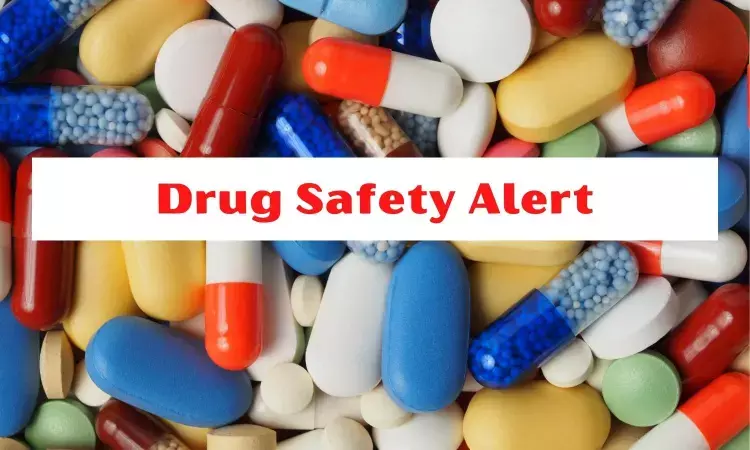- Home
- Medical news & Guidelines
- Anesthesiology
- Cardiology and CTVS
- Critical Care
- Dentistry
- Dermatology
- Diabetes and Endocrinology
- ENT
- Gastroenterology
- Medicine
- Nephrology
- Neurology
- Obstretics-Gynaecology
- Oncology
- Ophthalmology
- Orthopaedics
- Pediatrics-Neonatology
- Psychiatry
- Pulmonology
- Radiology
- Surgery
- Urology
- Laboratory Medicine
- Diet
- Nursing
- Paramedical
- Physiotherapy
- Health news
- Fact Check
- Bone Health Fact Check
- Brain Health Fact Check
- Cancer Related Fact Check
- Child Care Fact Check
- Dental and oral health fact check
- Diabetes and metabolic health fact check
- Diet and Nutrition Fact Check
- Eye and ENT Care Fact Check
- Fitness fact check
- Gut health fact check
- Heart health fact check
- Kidney health fact check
- Medical education fact check
- Men's health fact check
- Respiratory fact check
- Skin and hair care fact check
- Vaccine and Immunization fact check
- Women's health fact check
- AYUSH
- State News
- Andaman and Nicobar Islands
- Andhra Pradesh
- Arunachal Pradesh
- Assam
- Bihar
- Chandigarh
- Chattisgarh
- Dadra and Nagar Haveli
- Daman and Diu
- Delhi
- Goa
- Gujarat
- Haryana
- Himachal Pradesh
- Jammu & Kashmir
- Jharkhand
- Karnataka
- Kerala
- Ladakh
- Lakshadweep
- Madhya Pradesh
- Maharashtra
- Manipur
- Meghalaya
- Mizoram
- Nagaland
- Odisha
- Puducherry
- Punjab
- Rajasthan
- Sikkim
- Tamil Nadu
- Telangana
- Tripura
- Uttar Pradesh
- Uttrakhand
- West Bengal
- Medical Education
- Industry
Drug Safety Alert: Indian Pharmacopoeia Commission Flags ADR Linked To Ziprasidone

New Delhi: The Indian Pharmacopoeia Commission (IPC), through its recently issued drug safety alert for the month of April, has revealed that an atypical antipsychotic Ziprasidone may lead to adverse drug reaction known as Drug Reaction with Eosinophilia and Systemic Symptoms (DRESS).
This came after a preliminary analysis of Adverse Drug Reactions (ADRs) from the Pharmacovigilance Programme of India (PvPI) database.
Ziprasidone is an atypical antipsychotic used to manage schizophrenia, bipolar mania, and agitation in patients with schizophrenia.
In accordance with the drug safety alert, Ziprasidone is indicated for the treatment of schizophrenia and is used for rapid control of agitation in psychotic patients.
The effects of ziprasidone are differentiated from other antipsychotics based on its preference and affinity for certain receptors. Ziprasidone binds to serotonin-2A (5-HT2A) and dopamine D2 receptors in a similar fashion to other atypical antipsychotics; however, one key difference is that ziprasidone has a higher 5-HT2A/D2 receptor affinity ratio when compared to other antipsychotics such as olanzapine, quetiapine, risperidone, and aripiprazole. Ziprasidone offers enhanced modulation of mood, notable negative symptom relief, overall cognitive improvement, and reduced motor dysfunction which is linked to its potent interaction with 5-HT2C, 5-HT1D, and 5-HT1A receptors in brain tissue. Ziprasidone can bind moderately to norepinephrine and serotonin reuptake sites which may contribute to its antidepressant and anxiolytic activity.
Following the preliminary analysis of Adverse Drug Reactions (ADRs) from the PvPI database, it is reported that Ziprasidone may lead to adverse drug reactions known as Drug Reactions with Eosinophilia and Systemic Symptoms (DRESS).
The Drug Reaction with Eosinophilia and Systemic Symptoms syndrome presents clinically as an extensive mucocutaneous rash, accompanied by fever, lymphadenopathy, hepatitis, haematologic abnormalities with eosinophilia, and atypical lymphocytes.
Now, as per the issued drug safety alert, the following suspected drug is associated with the ADRs as given below:
Sl. No. | Suspected Drug | Indication | Adverse Drug Reaction |
1. | Ziprasidone |
· Use for rapid control of agitation in psychotic patients | Drug Reaction with Eosinophilia and Systemic Symptoms (DRESS) |
In light of the above, the Indian Pharmacopoeia Commission, Ministry of Health & Family Welfare, has advised Healthcare Professionals, Patients/Consumers to closely monitor the possibility of the above ADRs associated with the use of the above-suspected drugs.
Further, the safety alert added, "If such reaction is encountered, please report to the NCC-PvPI, IPC by filling of Suspected Adverse Drug Reactions Reporting Form/Medicines Side Effect Reporting Form for Consumer (http://www.ipc.gov.in), through Android Mobile App "ADR PvPI App" and PvPIHelpline No. 1800-180-3024 (Toll-Free)."
Mpharm (Pharmacology)
Susmita Roy, B pharm, M pharm Pharmacology, graduated from Gurunanak Institute of Pharmaceutical Science and Technology with a bachelor's degree in Pharmacy. She is currently working as an assistant professor at Haldia Institute of Pharmacy in West Bengal. She has been part of Medical Dialogues since March 2021.


